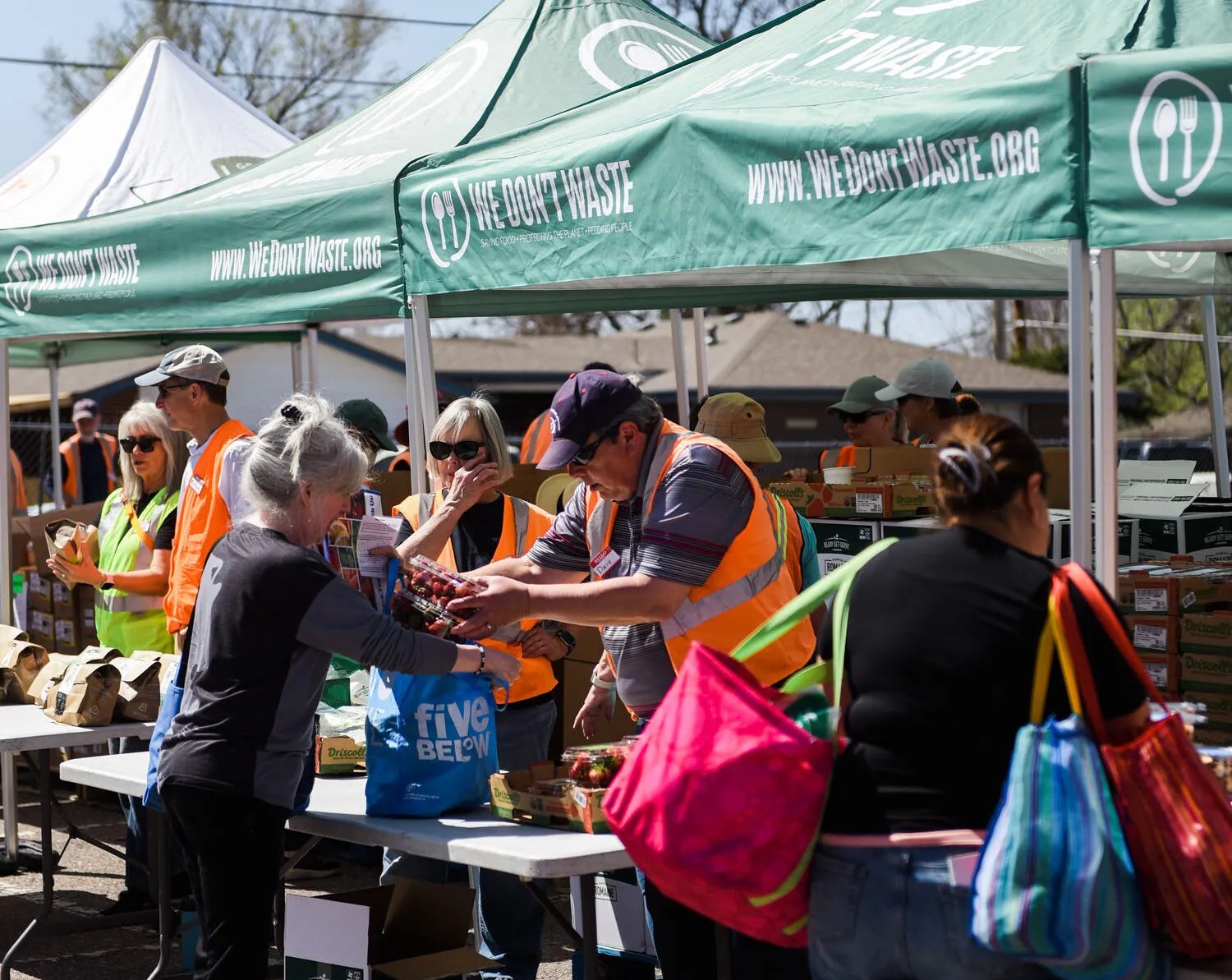
We Don’t Waste

Audio By Carbonatix
Around 600,000 Coloradans, nearly half of whom are children, rely on America’s Supplemental Nutrition Assistance Program, better known as SNAP, to serve as their food-security safety net.
The government shutdown caused a temporary disruption in the disbursement of SNAP benefits, destabilizing this critical source of support. But to be clear, SNAP wasn’t designed to cover an entire food budget, nor could it; the average benefit is less than $190 a month per person. Instead, as the name states, it serves as a supplement to what people can buy on their own.
Many nonprofits, including the one I lead, We Don’t Waste, are stepping up, striving to fill the gap. Our organization rescues surplus food from the food industry that would otherwise be sent to a landfill and redistributes it to those who need it. One way we can distribute thousands of servings of food each week is through our partnership with over 100 local nonprofits and by supplying their food distribution programs with the food we have recovered.
Through this network, we can reach tens of thousands of Coloradans each week, but many of our partners have shared that they are seeing an increase in concern about food security and are requesting an even greater supply of recovered food to provide more emergency food bags, stock more no-cost food pantries, serve more meals and, ultimately, feed more people.
Another way we share food is through our Mobile Food Markets: food distribution events set up farmers’ market-style, so that families and individuals can shop for the fresh produce, lean proteins, and healthy perishable and nonperishable items they want.
In recent weeks, our Mobile Market attendance has surged, in some places by approximately 60 percent, with several markets hitting record numbers as people like Maria seek help. We met her at a Mobile Market. After the tragic and unexpected death of her daughter, she gained custody of her grandchildren and now feeds a household of eight people on her own. She prepares breakfasts, packs lunches and cooks dinner each night. Maria uses her limited SNAP benefits along with the food she receives at our Mobile Food Market to make all of these meals happen.
“I went from almost $188 a month to $25,” she said. “This is about the only time and the only way that I can get assistance to help me feed my family, so I am really grateful for it.”
There’s a common misconception that people who receive SNAP benefits don’t want to work or are gaming the system. In reality, most SNAP recipients are people like Maria, facing difficult life circumstances or working low-wage jobs — and even multiple jobs that still don’t provide enough income to make ends meet.
It’s no secret that wages haven’t kept up with inflation, and the cost of living, especially housing and groceries, has continued to rise since the pandemic. Families can be doing everything “right,” yet still be unable to afford enough food.
Whenever food insecurity is on the rise, food banks and hunger-relief nonprofits are the first to feel its impact. The challenge right now is that nonprofits alone can’t handle the level of need we’re seeing. Even before the shutdown, the charitable food system was stretched thin by the loss of federal grants and fluctuations in individual and corporate giving due to the current economy. What can individuals do to help address such a significant shortfall and need? My mantra is give money, give time, give voice. By that, I mean:
- Give to a food-recovery organization, like We Don’t Waste or another of our partner nonprofits.
- Volunteer your time sorting, distributing or driving food to those who need it.
- Use your voice. Call your representatives and let them know you support SNAP funding. Challenge misconceptions about those who rely on SNAP assistance and food pantries to help feed their families.
What gives me hope, even in moments like this, is seeing our Denver community rally. Donors are giving what they can, volunteers are showing up, and neighbors are helping neighbors. The kindness, generosity and compassion I’ve seen have been moving and powerful. While SNAP alone is not enough, we can keep working towards building safety nets strong enough to catch everyone who needs them.